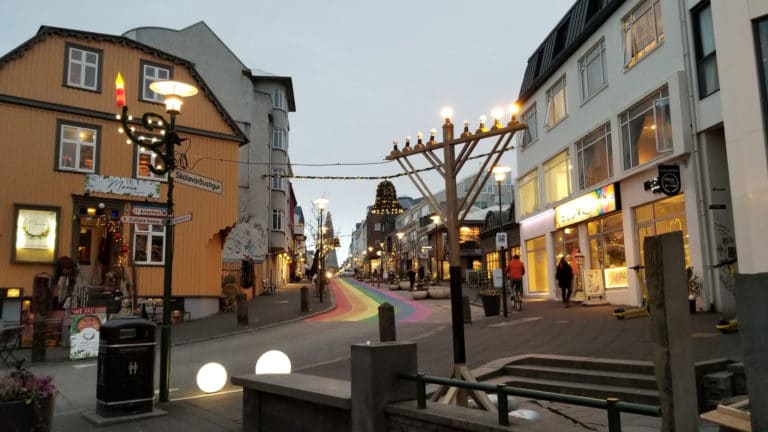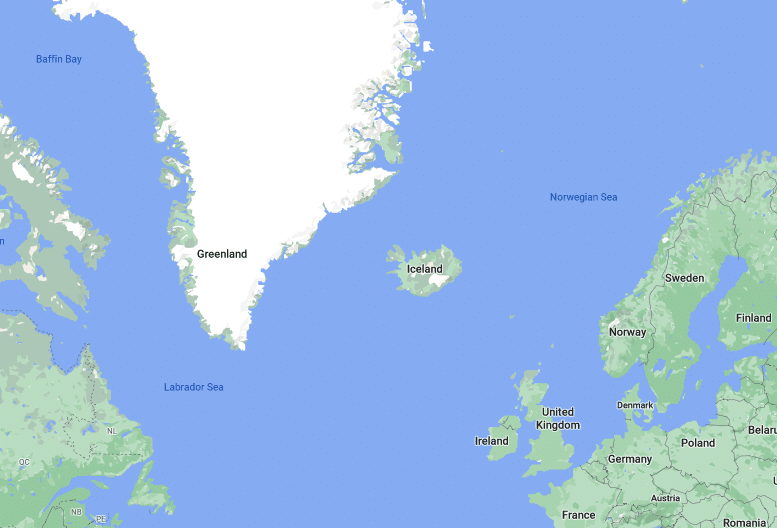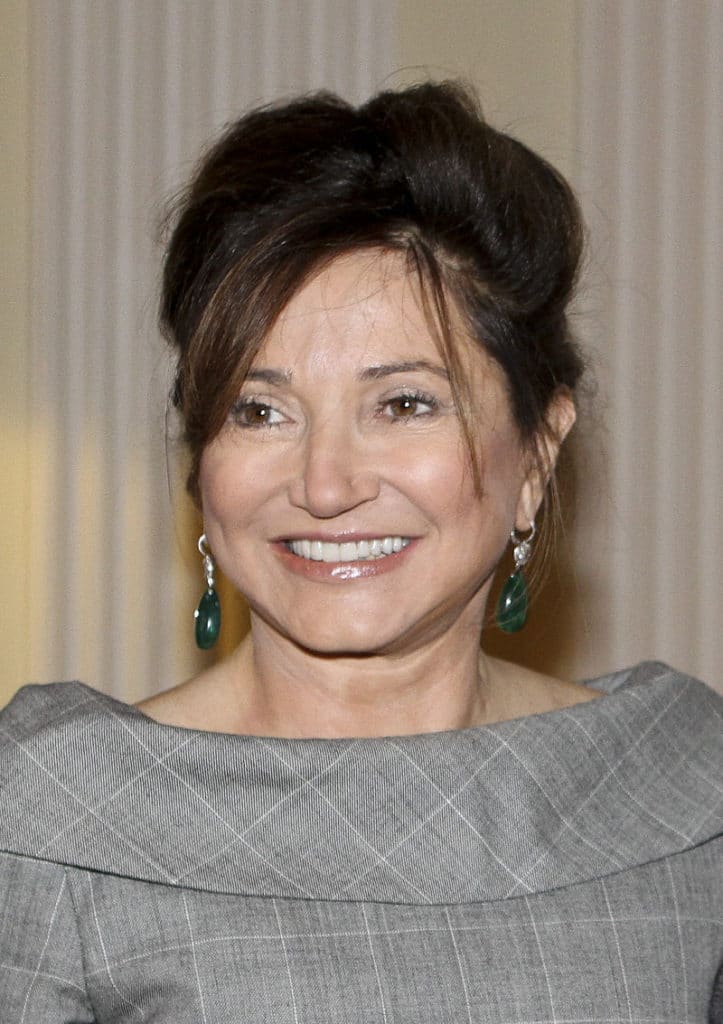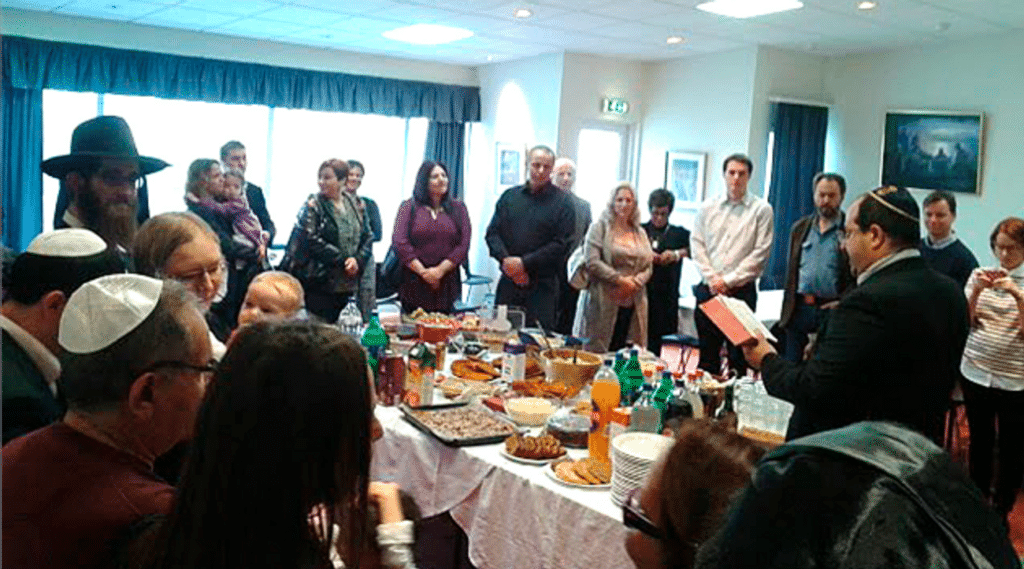
The first Jews to live in Iceland are believed to be merchants from Denmark who moved to the island nation in the early 1600s. There was an uptick in immigration in 1800s, however the Jewish presence in the country was temporary and by the early 20th century it’s believed there were only a few Jews living in the country. The first observant Jews are believed to have arrived in Iceland in 1906 but they only stayed for 11 years.
Fast forward to the 21st century. Today, there’s a small community estimated to be 300 strong that call Iceland home and now they are officially recognized by the government as a religion. (Iceland’s population totals around 357,000 people.)
“People here are very excited by this development,” Rabbi Avi Feldman told Chabad.org. “It’s not just a formality; it’s a reflection of the reality for Jewish life here in Iceland.”

Why it matters
Iceland has freedom of religion and Judaism was always allowed (for the most part) to be practiced in the country, but the move gives the community access to public tax dollars. Everyone in Iceland over the age of 16 pays a church tax called sóknargjald and only officially recognized religions are eligible for payment (about 50 religions are recognized by the government). The payment comes out to about $100 a year. With recognition citizens can now allocate their sóknargjald portion to the Jewish community. The move also comes with the possibility of a government land grant to expand the community’s footprint.
The relationship between Jews and Icelanders is neutral but improving. For example, the Icelandic word for Jewish is “Gyoingar,” which holds many negative connotations.

Perhaps the most famous Icelandic Jew is the country’s former first lady Dorrit Moussaieff. Born in Jerusalem to a wealthy Bukharian Jewish family, Moussaieff is an Israeli jewelry designer, editor and businesswoman. She wed President Olafur Ragnar Grimsson in 2003 and held the post of First Lady from 2003 to 2016. Moussaieff became a citizen of Iceland in 2006 and describes herself as “religious in the soul,” adding that she continues to observe many Jewish rituals.
Jews in Iceland during World War Two
In the 1930s the Nazi Party was active in Iceland and hostility towards Jews increased with several individuals ultimately being expelled from the country. Iceland closed its borders to Austrian Jews in 1938 and in 1939 a report written for the Aid Association of German Jews concluded that refuge in Iceland to escape German rule was impossible.
That all changed in 1940 when British forces occupied the country. Among the soldiers stationed there were several Jews and in 1940 a Yom Kippur service was attended by 25 servicemen. It is believed that the service was the first official non-Christian religious ceremony to take place in Iceland in 940 years.

In 1941 U.S. troops joined the garrison in Iceland and the Jewish population grew to more than 2,000 by 1944. The Rosh Hashana service in 1944 at Naval Air Station Keflavik was attended by 500 people and a Torah scroll was flown in from the United States. Despite this, the number of Jews permanently living on the island remained small, Iceland’s Statistical Bureau recorded only 9 Jews in Iceland in 1945.

Between World War Two and the mid-1950s the military Jewish community in Iceland was large enough to support two congregations (one Orthodox and one not). The synagogue at the NATO base in Keflavik (about 40 minutes southwest from the capital) closed in 2006.
Jews in Iceland today
For decades Iceland’s capital Reykjavík was the only European capital to not have a synagogue. In 2011 an estimated 40 Jews were living in Iceland, most in the capital city. That same year Chabad sent an emissary to the country to restart communal Jewish life. Rabbi Berel Pewzner, then 23 years old, is believed to be the first formal rabbi to set up base in Reykjavík, Torah scroll included, since at least World War Two.

Today there is a synagogue managed by Chabad in Reykjavík (Rabbi Avi Feldman moved to Iceland in 2018 making him the first rabbi to permanently call Iceland home) and the local Jewish community has grown to an estimated 300 (mostly expats).
Huge thank you to the Krausz family for this special gift of a Torah! The Jewish community in Iceland is so grateful to you! Thanks to our volunteers and to Gabriel Rutenberg for stunning photos! pic.twitter.com/4SxjlqJfzR
— Rabbi Avi Feldman (@ChabadIceland) February 18, 2020
The Reykjavík Chabad House is a popular travel destination for Jewish travelers, with more than 100 Jewish tourists showing up annually during Passover to take part in seder services.
Saying a blessing on the volcano pic.twitter.com/ujiT9wPtDH
— Rabbi Avi Feldman (@ChabadIceland) March 25, 2021
Unique challenges to Jewish life in Iceland
Perhaps the most unique challenge to observant Jewish life in Iceland is the sun. Due to its position in the Northern Hemisphere days in Iceland are long during the summer and short during the winter. In December a night can last as long as 20 hours and in June a day can last as long as 21 hours.

“These are all fascinating challenges, but they are manageable,” Rabbi Feldman told lubavitch.com. “The latest sunset is at 11:45 p.m. So we will bring Shabbat in roughly two hours earlier and light candles at about 9:30.”

In 2018 Iceland’s Parliament proposed a bill that would have banned circumcision. The bill had wide support from all major political parties but was quickly condemned by Jewish and Muslim groups (about 1,000 Muslims live in Iceland). The bill was dropped from consideration after the outcry.
Iceland’s Animal Welfare Act inadvertently bans kosher slaughter in the country. The law states that animals must be sedated prior to slaughter and that there are no religious exemptions. Import of kosher meat however is allowed.
Originally Published Apr 12, 2021 10:51AM EDT
